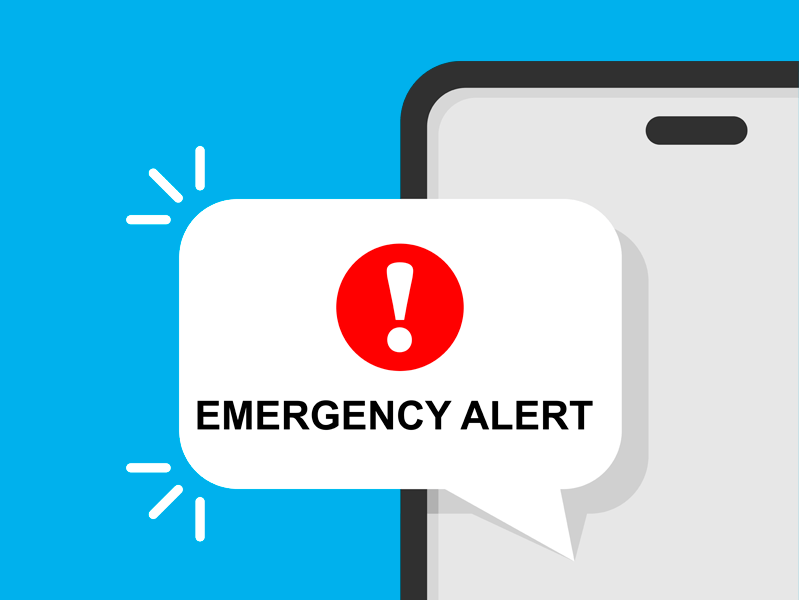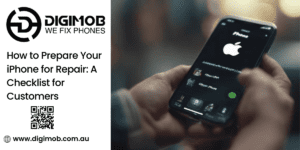Introduction:
Dealing with a malfunctioning phone can be stressful and disruptive, especially when you rely on it for communication, work, and entertainment. While some phone repairs are unavoidable due to accidents or wear and tear, there are proactive steps you can take to minimize the risk of experiencing an emergency phone repair. In this guide, we’ll explore practical tips to help you safeguard your device and avoid unexpected repair situations.

- Invest in a Quality Phone Case:
- A sturdy phone case provides essential protection against drops, impacts, and scratches. Invest in a high-quality case that offers ample coverage for your phone’s edges, corners, and screen. Look for features like shock-absorbent materials, reinforced corners, and raised edges to safeguard your device from accidental damage.
- Apply a Screen Protector:
- A screen protector adds an extra layer of defense against scratches, cracks, and shattering. Opt for a tempered glass screen protector, which provides superior durability and impact resistance compared to plastic film protectors. Ensure proper installation to cover the entire screen and maintain touch sensitivity.
- Use a Lanyard or Wrist Strap:
- Attaching a lanyard or wrist strap to your phone can prevent accidental drops and falls. Many phone cases come with built-in attachment points for lanyards or straps. By securing your phone to your wrist or attaching it to a bag or belt loop, you can minimize the risk of damaging impacts.
- Avoid Liquid Exposure:
- Water damage is one of the most common reasons for emergency phone repairs. To protect your device from liquid exposure, avoid using your phone near water sources such as sinks, pools, or bathrooms. Keep your phone away from drinks, spills, and moisture-prone environments to prevent damage to internal components.
- Be Mindful of Extreme Temperatures:
- Extreme temperatures can adversely affect your phone’s battery life and performance. Avoid exposing your device to prolonged periods of high heat, such as leaving it in direct sunlight or inside a hot car. Similarly, avoid exposing your phone to extremely cold temperatures, which can cause battery drain and screen responsiveness issues.
- Regularly Clean and Maintain Your Phone:
- Dirt, dust, and debris can accumulate in ports, buttons, and speaker grilles, leading to performance issues and potential damage. Regularly clean your phone with a soft, dry cloth to remove dirt and debris. Use compressed air or a soft brush to gently clean ports and openings, and avoid using harsh chemicals or abrasive cleaners.
- Backup Your Data Regularly:
- Unexpected phone repairs can result in data loss if not properly backed up. Protect your important photos, documents, and files by regularly backing up your phone’s data to the cloud or a computer. Set up automatic backups to ensure that your data is continuously protected against loss or damage.
Avoiding emergency phone repair can save you time, money, and frustration. Here are some tips to help you keep your phone in good condition and prevent the need for urgent repairs:

- Use a Protective Case and Screen Protector:
- Invest in a high-quality protective case and tempered glass screen protector for your phone. These accessories can provide an extra layer of defense against drops, scratches, and other physical damage.
- Handle Your Phone with Care:
- Be mindful of how you handle your phone to avoid accidental drops or impacts. Avoid placing your phone in precarious positions or exposing it to extreme temperatures or moisture.
- Keep Your Phone Clean:
- Regularly clean your phone to remove dirt, dust, and debris that can accumulate over time. Use a soft, lint-free cloth to wipe the screen and body of the phone gently. Avoid using harsh chemicals or abrasive materials that could damage the device.
- Be Mindful of Liquid Exposure:
- Keep your phone away from liquids to prevent water damage. Avoid using your phone near water sources such as sinks, pools, or baths. If your phone does come into contact with liquid, power it off immediately and seek professional assistance.
- Avoid Overcharging and Extreme Temperatures:
- Avoid overcharging your phone or leaving it plugged in for extended periods, as this can degrade the battery over time. Additionally, avoid exposing your phone to extreme temperatures, such as leaving it in a hot car or exposing it to freezing temperatures.
- Update Software Regularly:
- Keep your phone’s operating system and apps up to date with the latest software updates. These updates often include bug fixes, security patches, and performance improvements that can help prevent software-related issues.
- Use Caution When Installing Apps:
- Be cautious when installing third-party apps on your phone, especially from unknown sources. Stick to reputable app stores such as the Google Play Store or Apple App Store, and read user reviews and permissions carefully before installing apps.
- Backup Your Data Regularly:
- Regularly back up your phone’s data to prevent data loss in case of accidental damage or malfunction. Use cloud storage services or physical backups to store your photos, videos, contacts, and other important files securely.
By following these tips and practicing good habits, you can reduce the risk of encountering emergency phone repair situations and prolong the lifespan of your device. Prevention is key to maintaining a healthy and functional phone.
Tech tantrums? We’ve got the fix! 🛠️ laptops 🖥️ to iPhones 📱, MacBooks 💻 to iPads, Your one-stop solution for all things digital. From laptops to smartphones, we mend them all! 💼 Visit digimob.com.au for swift and reliable repairs. 🚀
Conclusion:
By following these proactive tips, you can significantly reduce the likelihood of experiencing an emergency phone repair. Investing in a quality phone case and screen protector, using a lanyard or wrist strap, avoiding liquid exposure and extreme temperatures, regularly cleaning and maintaining your phone, and backing up your data regularly are key strategies for protecting your device and ensuring its longevity. By prioritizing preventive measures, you can enjoy peace of mind knowing that your phone is safeguarded against unexpected repairs and downtime.

Tips to Avoid Emergency Phone Repair
FAQs (Frequently Asked Questions)
Is it essential to use a protective case and screen protector for my phone?
While not mandatory, using a protective case and screen protector can significantly reduce the risk of damage to your phone from drops, scratches, and impacts. It’s a wise investment to protect your device from potential emergencies.
How can I prevent water damage to my phone?
To prevent water damage, avoid using your phone near water sources, invest in a waterproof case if you anticipate exposure to moisture, and act quickly if your phone does come into contact with liquid by powering it off and seeking professional assistance.
What should I do if my phone overheats?
To prevent overheating, avoid exposing your phone to extreme temperatures and ensure proper ventilation during charging. If your phone does overheat, allow it to cool down before using it again and avoid using it while charging.
How often should I update my phone’s software?
It’s advisable to update your phone’s software regularly, as updates often include important bug fixes, security patches, and performance improvements. Check for updates at least once a month and install them promptly.
Are there any precautions I should take when traveling with my phone?
When traveling with your phone, be mindful of potential hazards such as theft, loss, or damage. Keep your phone secure in a pocket or bag, avoid leaving it unattended, and consider using a travel insurance plan that covers electronics for added protection.


